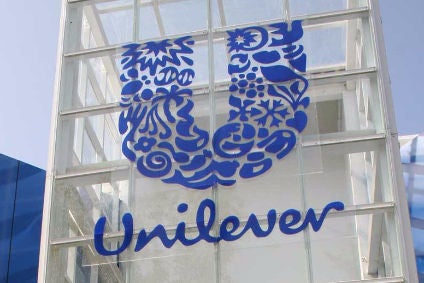
Unilever has cautioned a proposal to change tax law in the Netherlands could derail the FMCG giant’s plan to change its legal structure.
The Knorr and Magnum maker wants to unify its legal structure under a single entity headquartered in London.

Discover B2B Marketing That Performs
Combine business intelligence and editorial excellence to reach engaged professionals across 36 leading media platforms.
Since Unilever’s formation in 1930, the company has been owned through two separately listed companies, a Dutch NV and a UK plc. The company plans to create one class of shares. Shareholder meetings on the plans are set for September and October.
In documentation released yesterday (10 August), Unilever said a member of the Dutch Green Party had tabled a bill that would look to impose a tax on certain transactions.
The bill would need to pass the Netherlands’ two legislative houses, while Unilever said it had legal advice the measures, if enacted and applied to the company’s unification plans, would mean the Dutch government “would be in manifest breach” of certain international regulations.
Nevertheless, Unilever has estimated the financial impact the bill could have should the proposal become law and is administered on its unification plan.

US Tariffs are shifting - will you react or anticipate?
Don’t let policy changes catch you off guard. Stay proactive with real-time data and expert analysis.
By GlobalData“If the bill were enacted in its present form and applied to unification, the [NV and plc] boards believe that proceeding with unification, if it resulted in an exit tax charge of some EUR11bn (US$12.96bn), would not be in the best interests of Unilever, its shareholders and other stakeholders as a whole,” Unilever said.
“The bill may be subject to amendment during the parliamentary process and it is not clear when, or indeed if at all, the bill may be enacted, or in what form. Accordingly, the ultimate effect of the bill on the proposed unification is not clear at present. The boards intend to proceed with their proposals provided that unification, in the boards’ view, remains in the best interests of Unilever, its shareholders and other stakeholders as a whole. As the situation develops, the boards will continue to assess all options available and will update shareholders as appropriate.”
Unilever has in the past reviewed its corporate structure. In 2018, the Hellmann’s owner opted to withdraw a proposal to unify the business under a new Dutch holding company.
The company believes its latest move will give it “strategic flexibility for portfolio evolution”, which may include acquisitions or “demergers”.
Under the plans, Unilever’s food and refreshments division, which generates 40% of its turnover, will remain headquartered in Rotterdam, along with its research and development unit. The home care, and beauty and personal care business divisions, will continue to be located in the UK.
A shareholder vote on the unification for Unilever NV investors is set for 21 September. Meetings for Unilever plc shareholders will take place on 12 October. Unilever says its unification is expected to be completed over the weekend of 21 and 22 November, meaning that the expected last day of trading in Unilever NV shares would be 20 November.





